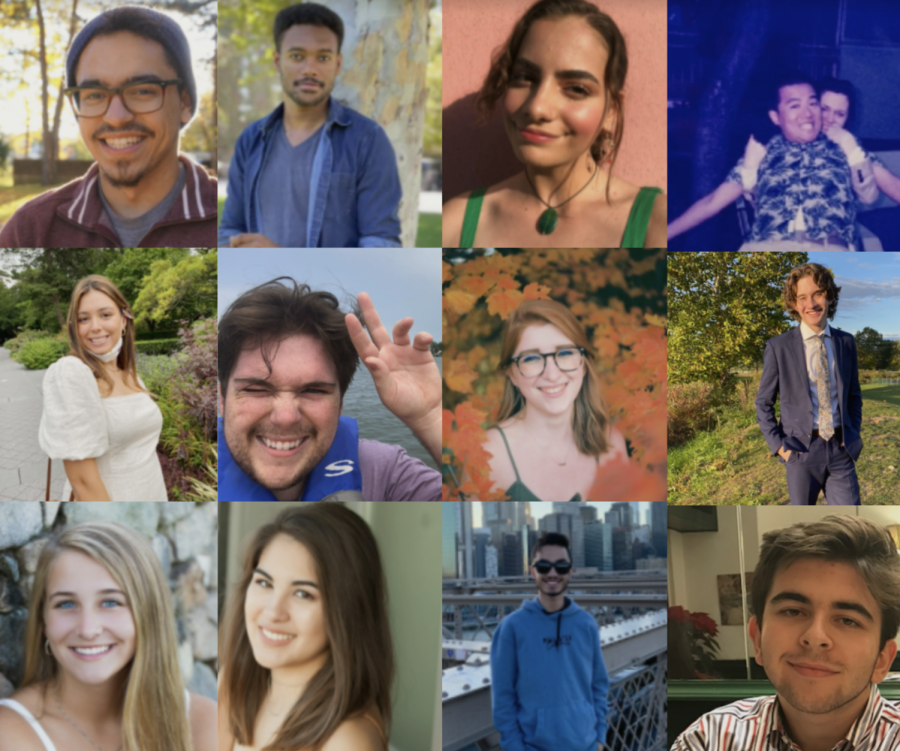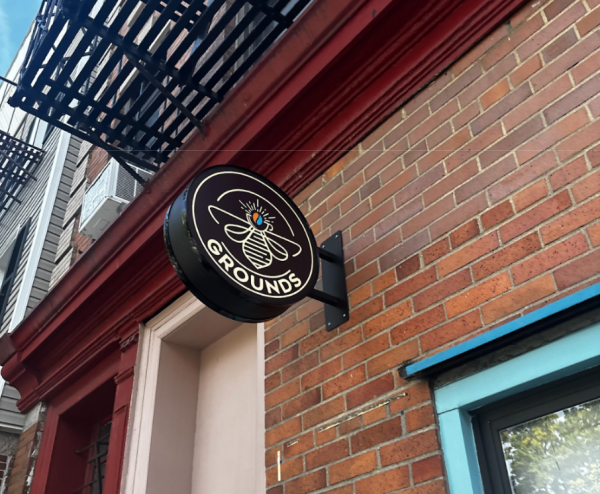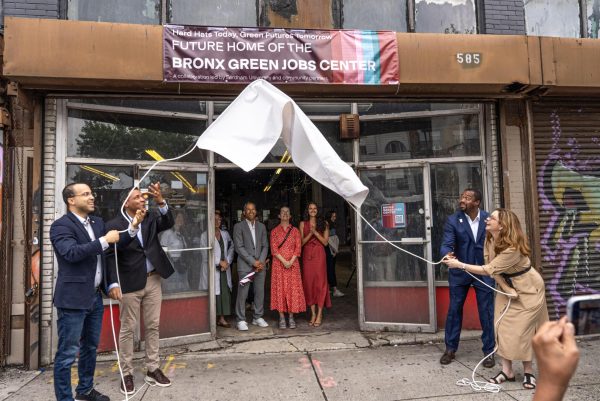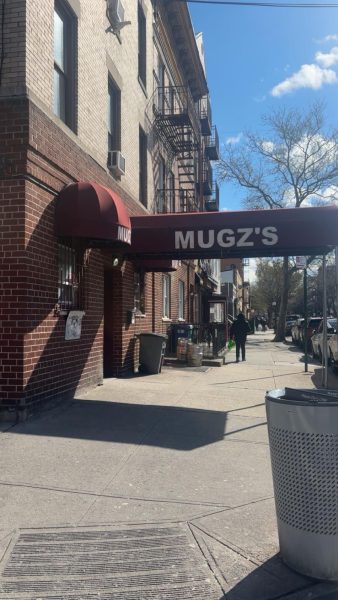Center for Community Engaged Learning Continues with Engaged Leaders Fellowship
Photo Courtesy of Vanessa Rotondo
Fordham’s CCEL continues with their Engaged Leaders Fellowship program this semester.
The university’s Center for Community Engaged Learning, known as CCEL, is offering a new student fellowship, Engaged Leaders Fellowship (ELF), which started in the 2020-21 academic year. The fellowship “encourages students to apply research methods to deepen their commitment to community engagement.”
The fellowship consists of cohorts, which each have 12 interdisciplinary students. The cohorts meet biweekly to discuss ways to bring “epistemic justice to our campus.” To become part of the fellowship, students must be nominated by someone in the Fordham community and interview with CCEL for a spot.
The cohorts “engage in conversations about the history of New York, the history of community organizing and advocacy […] they then ideate practical community-based research questions and form projects to address those questions from a reciprocal, community-driven lens.”
“Taking the epistemological roots of our Jesuit education that really seeks to excavate truth as an avenue of the aim of education,” said Vanessa Rotondo, the assistant director of immersions and student leadership. “Because we primarily work in our immediate communities, we really want to create a space to demystify some of the stigma about our immediate community and provide data that is informed by the research projects our students do.”
For the 2021-22 academic year, there are currently three cohorts of Engaged Leaders. One cohort is working on collecting data about COVID-19 vaccine hesitancy among pregnant women in the Bronx. The second cohort is working on the social stigma of the experience of housing. Another group is working on an internal evaluation of Fordham’s college access programs.
In the previous academic year, which was the first year of the fellowship, two cohorts produced eight projects. “One cohort was really Fordham University focused, and one cohort was New York-based. One project from the university was the socialization of college students through Ignatian activism,” said Rotondo. “They did a number of different faculty, staff, administrator and student interviews to understand how people consume Jesuit/Ignatian pedagogy paradigms in their own lives and take that into either activism, the classroom, extracurriculars, things like that” Rotondo said the interview produced interesting results: “On the one hand, some people do it unconsciously, and they do not think what they are doing is Ignatian, but in turn, by being able to provide that language, they have a stronger affinity to mission. And you have the other end of it where people do it intentionally to help proliferate the mission, and there were people who did not know what the mission was, so being able to fill that gap.” The other New York based project examined the residence hall cultures at three Catholic colleges in New York: St. John’s, Manhattan College and Fordham.
Christopher Kerrane, GSB ’22, who is a fellow from the previous year, researched housing insecurity in New York City, focusing on the effects after the COVID-19 pandemic. Kerrane spoke with the Bronx Community Board and Part of the Solution (POTS) to get a sense of how housing insecurity changed during the pandemic.
“There have been a lot more issues since the pandemic began, due to unemployment, the ever-increasing cost of living in the city and various other factors. Also that, given the nature of the pandemic, that it was harder for organizations like POTS to give services to individuals facing housing insecurity because, for example, they offer services like showers and hot food and that became more difficult, especially in the spring of 2020 when the restrictions were at their height, and there was so much uncertainty. So really taking a look at how, specifically the pandemic, but how that impacted the houseless population and how organizations are responding to that.”
Kerrane, who was not used to this specific research, found that he was able to connect with new students. “It was very interesting for me to have this avenue and space to do this research with fellow students who I would not have met otherwise, and I think it was important too because during the COVID-19 pandemic we are living in something so transformative in our society, and we don’t really recognize all the things that have changed yet,” said Kerrane.
Ally Klapak, FCRH ’22, is a current ELF fellow, and is studying the efficacy of the CCEL’s academic partnerships with the individual community and organizations.
“I have been gaining a greater sense of community through being involved with the Engaged Leaders Fellowship. It has been great to get to know everyone in the cohort and see how they apply their different interests and skill sets to their projects. I have also been gaining more insight into the connections that exist between CCEL and the community that may not be so visible to those not involved in CCEL,” said Klapak.
Klapak explained that their project aims to strengthen the academic partnerships CCEL forges with community schools and organizations. Through better understanding the needs and goals of partner students and ministrations, their connections can be shaped to best fulfill these needs, “we are hoping to use our data to design partnerships that are directly informed and shaped by the voices of the community.”
“Everyone should check out the CCEL blog if they are interested in supporting these academic partnerships and community students through tutoring and mentoring roles,” she added.
All of the groups will present at the Undergraduate Research Symposium on May 4 at Rose Hill. According to Rotondo, “they present there, and then looking forward, the center is really putting a priority toward student-driven research, and I personally think, having gone here too as an undergrad, I think being able to create this new experience of community-based research is another step in us being a more active community members in New York.”
“In this Ignatian year, it is really important for our students to be aware of our mission and understand how we as citizens of the Bronx and Jesuit-educated students really bear the responsibility to use our education for an avenue of the common good, and this is one opportunity I am grateful to be a part of and be able to see that done tangibly,” added Rotondo.
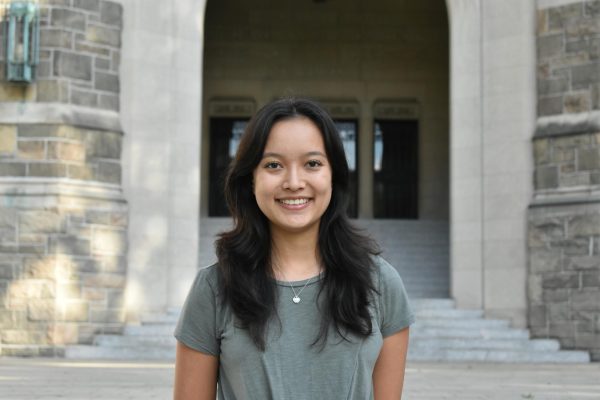
Emma Kim is a junior from Pittsburgh. She is double majoring in economics and English. She started as a contributing writer for news in her freshman year...





































































































































































































